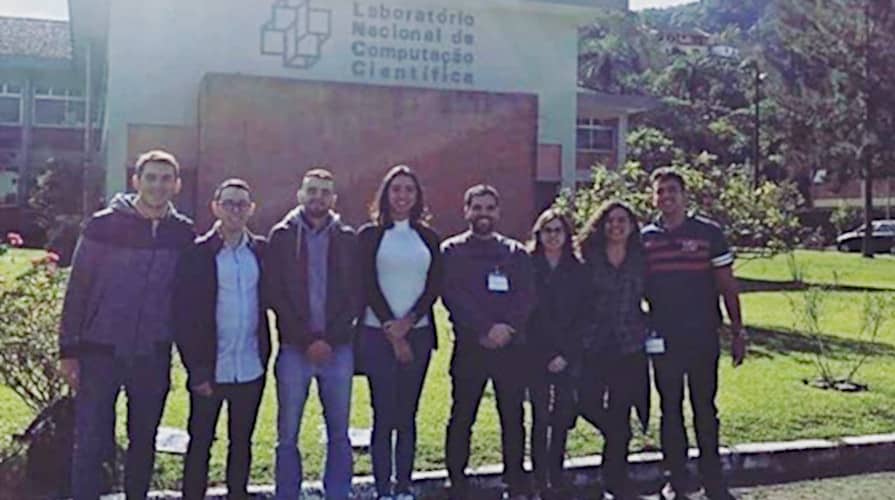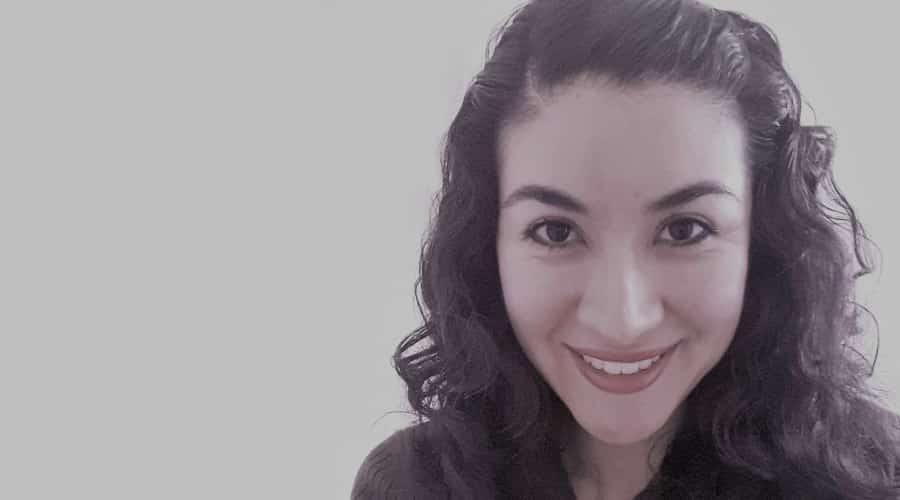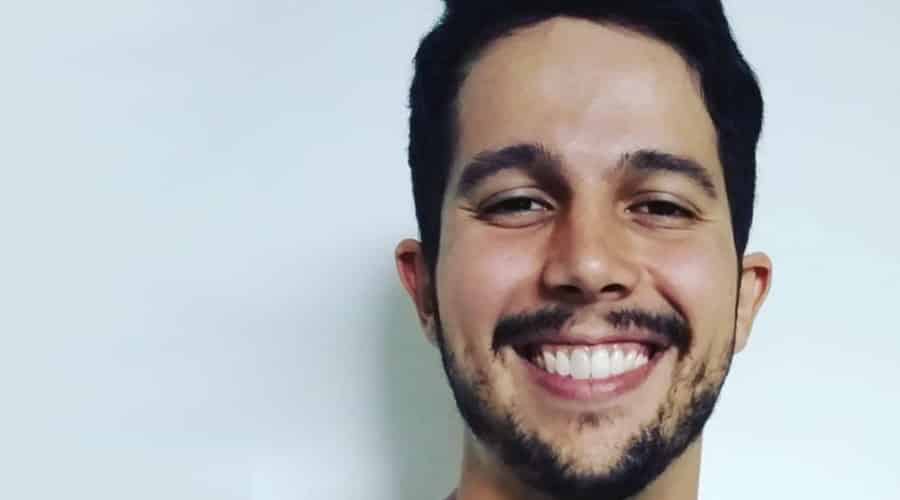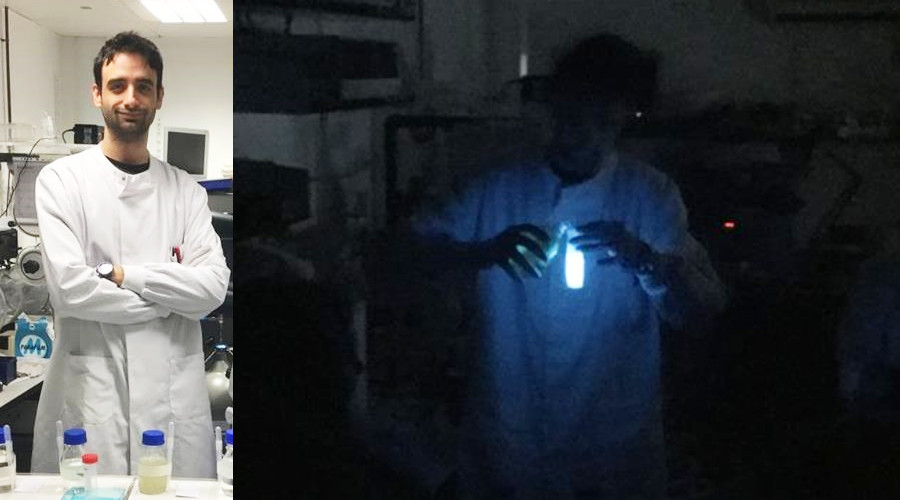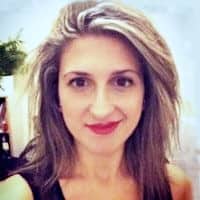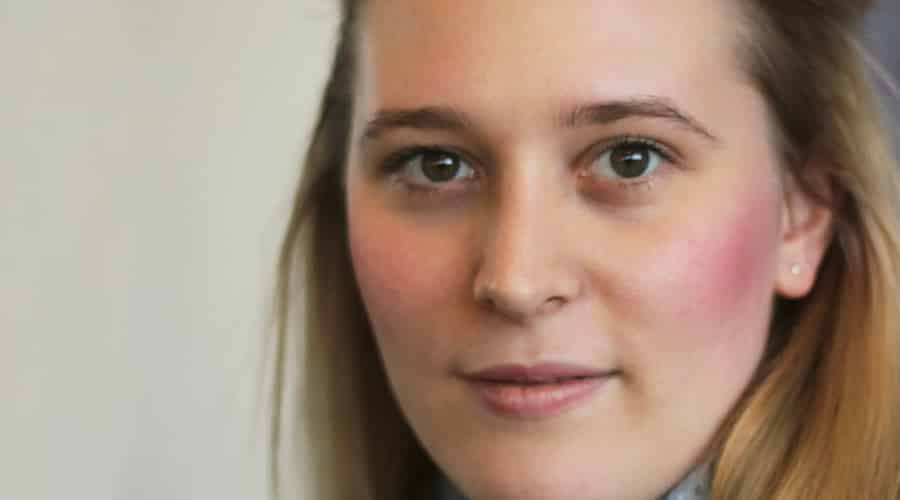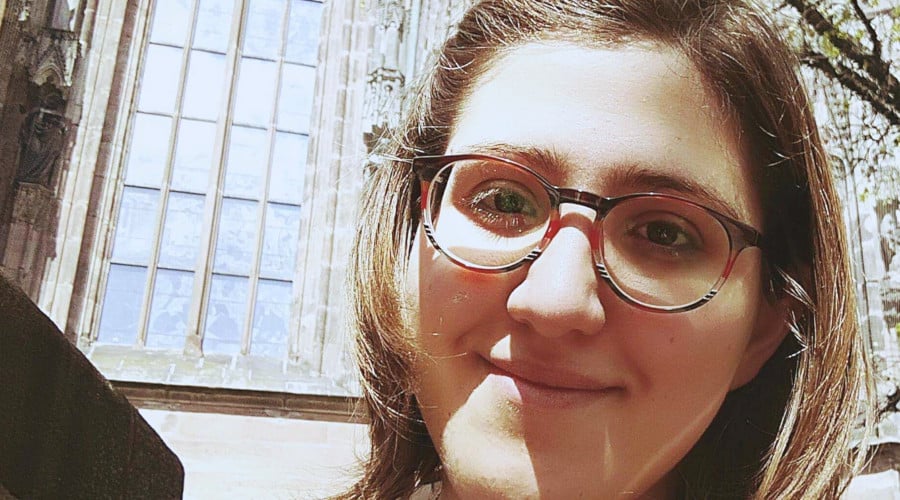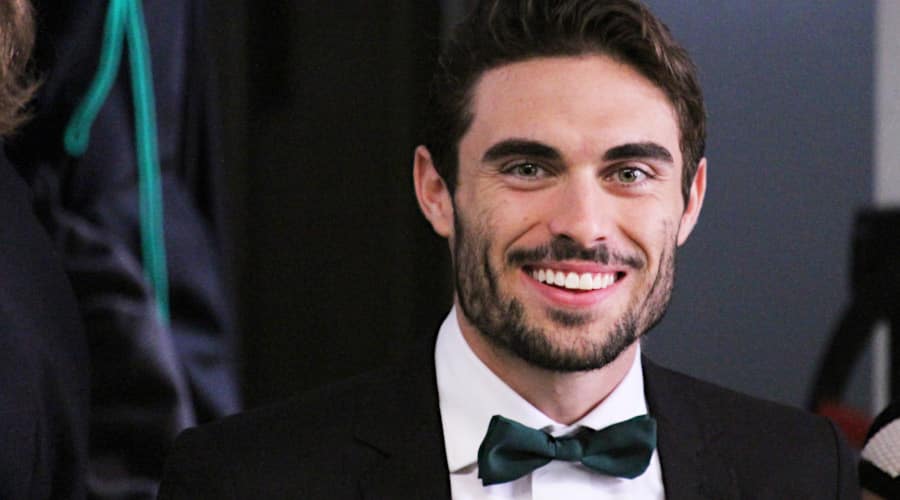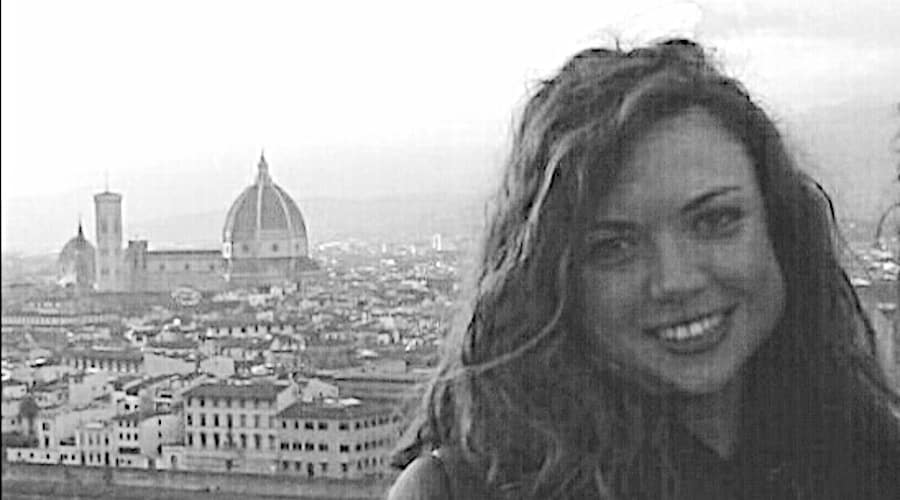#PHDstory | Vlad Schüler Costa
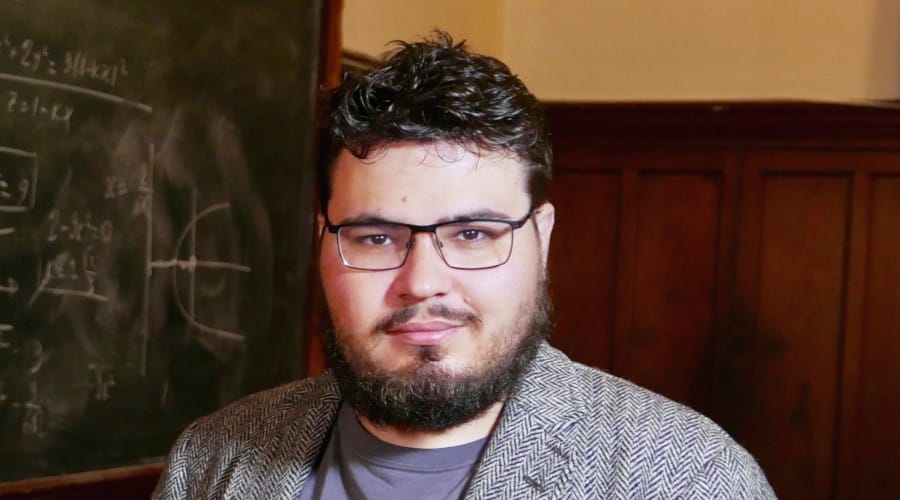
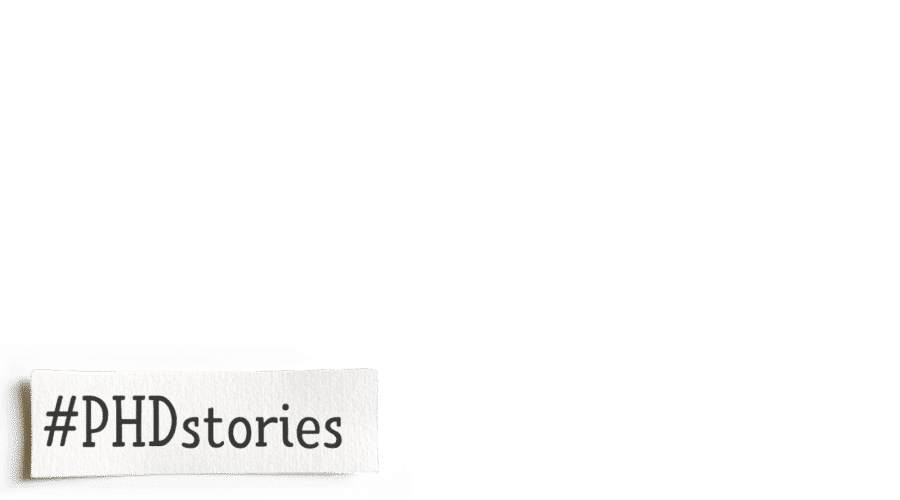
This project is about shedding light on the dreams and work of academics and researchers. The aim is to sharing their aspirations with larger audiences who care about current research that is conducted from around the world. As a start please introduce yourself.
Sure. I’m Vlad Schüler Costa, I’m a Brazilian anthropologist, and I’ve been doing my research here in Manchester for the past three years now.
What is your research on and where are you conducting it (what stage you are at, what department and university, where you conduct your research?
I’m a fourth year student now, within the Social Anthropology Department at the University of Manchester.
My research is situated within the subfield of “anthropology of science”. More specifically, I conducted one year of fieldwork observing scientists at work in a laboratory within the University of Manchester’s Institute of Biotechnology. The scientists in this lab were working to develop a “robot scientist” — an apparatus that uses laboratory robotics and artificial intelligence to automate a specific kind of microbiological research, without the need for human intervention (only oversight).
Why did you choose this topic of research?
Honestly, there were many reasons. Back in 2013/2014, during my Master’s, I was exposed to the anthropology of science, the sociology of knowledge, and STS (science and technology studies), and I found it all absolutely fascinating. I was studying digital anthropology back then (with a side focus on the political economy of knowledge), and through that I got to know some people who were doing research in IT and AI, and it seemed to me a field that opened so many questions to the core issue of anthropology — “what makes us human?”.
After that, it was a matter of luck and persistence until figuring out the particular place where I wanted to conduct my research — back then I hadn’t any idea I would get so involved with microbiology!
What contribution your research is going to add?
Well, it depends, honestly. In some ways, I make very humble contributions — a huge part of what the thesis is about is saying that “this thing this author says happens in these conditions also happened in my fieldsite!”.
But I also aim at bigger discussions — for example, the anthropology of robotics is completely fixated on anthropomorphic (humanlike) robots, and I want to argue not only that not all robots are humanlike, but that the way we treat those non-humanoid robots is much more fraught with uncertainties than the literature seems to convey.
Tell us a little more about your research and it’s significance
Okay. I’ve done this year of participant observation within this lab. We anthropologists tend to prefer participant observation because it is the best method to, well, observe people and understand what they do in their daily lives. That (what some people also call “ethnography”) is what mostly distinguishes the kind of knowledge anthropologists are generally interested in generating — rather than what stands out or is uncommon, we tend to look for the everyday, quotidian practices of regular people.
And this is highly important when discussing science! You see, most scientists know that science is mostly done by regular people, carrying out their research, which sometimes can be boring and tedious. However, when scientists (and other people, such as science journalists, etc) write about science, they tend to highlight the fun, “sexy” parts of it, rather than the troublesome and laborious reality of it. People don’t talk about how many experiments failed before finally getting that reliable, reproducible one. Or about how much time you have to spend calibrating your equipment every time before you run an experiment, because any slight change in parameters might affect the data.
So these everyday realities of science becomes similar to what Michael Taussig calls “public secrets” — “that which is generally known, but cannot be articulated”. Scientists might chat about these issues among themselves — particularly, I’ve found out, when touching base with their colleagues, when people trade these “war stories” — but rarely in public fora. And I feel that is one of the reasons why “laypeople” are sometimes shocked when they get to know the “backstage” of science. They expect science to be all about absolute certainty and minute precision, so when they discover that science is not quite like that, well, they might feel shocked!
That’s why I think it’s important to demystify science even if just a little bit, and that’s what I try to do in my research.
Where do you see yourself in 5 or 10 years from now?
That’s an unknown yet. I’d like to stay in academia, hopefully as a permanent lecturer or professor — as I love teaching and supervising, even more than researching or writing.
Of course, as we all know, it isn’t so easy to find a stable job within academia nowadays, so I might keep conducting research and writing — either as a postdoc, or even outside academia.
What do you think can be improved in higher education and participation in order to encourage more people to conduct research that makes a change?
Honestly, the crescent neoliberalisation and commercialisation of higher education concerns me, a lot. Not only because it completely distorts what academia should be about — “the pursuit of knowledge” or however you’d like to phrase it — but also because it creates an unnecessary hurdle to people who cannot afford to participate.
We are asking teenagers to decide if their parents can afford their studies, or alternatively whether they want to get piles of debt that will last throughout their adult life.
Furthermore, this impacts the actual research being conducted as well. Researchers cannot afford to pursue long-term research goals, because the current system is increasingly based on short-term quantifiable metrics, like publications — see Peter Higgs, Nobel prize winner, who has said ‘no university would employ him in today’s academic system because he would not be considered “productive” enough’ (https://www.theguardian.com/science/2013/dec/06/peter-higgs-boson-academic-system).
What inspires you as a person and a researcher?
That’s a tough one. I’ll risk sounding cheesy, but I think the world inspires me.
One of the reasons I became an academic is because the world as a whole, and the social world in particular, absolutely baffles me. I find the oddest things completely fascinating, and sometimes I’ll spend an unreasonable amount of time thinking about the most mundane stuff.
This is what Brazilian anthropologist Roberto DaMatta has famously called the “anthropological blues” — becoming fixated and delighted in the simplest things, and euphoric when you finally get to figure them out. This feeling, of “figuring things out”, inspires me.
Is there anything you would like to share with us regarding a change of perspective or belief you had during your PhD journey?
There are a couple, but I think the one that I find the most interesting is how I stopped “believing” in (completely closed) academic disciplines. The lab I worked in was inherently interdisciplinary, and people would have loads of interests and knowledge about things you wouldn’t immediately expect them to have based on their degrees. I now tend to think of disciplines as being similar to languages — they are a way of representing the world and communicating that to others, but they are much less rigid than they seem at first sight.
What are the challenges and benefits of your type of research and topic?
The biggest challenge in the anthropology of science is actually getting access to fieldsites. Most of us have our stories of approaching a particular laboratory or research group asking to study them, and having that request denied. I think this happens more often nowadays, as all of us feel the threat of science denialism and anti-science movements in the broader society. And I’m not saying I don’t understand that people might get uncomfortable when a stranger appears out of nowhere wanting to observe them! It’s just that sometimes it is challenging trying to find a place that will accept your presence as a “resident anthropologist”.
And in fact, I think the loss ends up being on those labs, because anthropologists of science overwhelmingly end up being the most passionate science advocates you can find. In fact, some of us, myself included, end up dedicating a lot of (unpaid) time and energy to science communication and popularisation. Not only because we end up befriending most of our informants — it’s very difficult to conduct anthropological research if you don’t get along with them –, but in fact it is a skill we acquire through our research — after all, most of my work is “translating” the (robotics, AI, microbiology) research I have witnessed to “laypeople” (other anthropologists).
Ph.D. is a big commitment, what would you like to say to aspiring researchers?
Don’t rush into it! I know some people who think they are “too old” or have “lost the timing” to pursue a Ph.D., but many of the best anthropologists I know started their PhDs later in life.
Otherwise, keep in mind that pursuing a Ph.D. tends to be a highly stressful enterprise, regardless of your field. You are not the only one who is struggling, and it’s tough because discovering new knowledge is tough. Remember to enjoy life, chat with friends and please go to therapy.

Vlad’s research is very interesting as it looks at the human aspect within a robotic environment. He seeks to highlight the human experience in a scientific lab which does not really get much attention apart from the final outcomes of the experiments (contingent on its success).
Vlad is a very intelligent intellectual and full of life which reflects very well in how he presents his work. Keep an eye on his work, you will learn a lot and enjoy his light-hearted tweets.

Vlad’s research is very interesting as it looks at the human aspect within a robotic environment. He seeks to highlight the human experience in a scientific lab which does not really get much attention apart from the final outcomes of the experiments (contingent on its success).
Vlad is a very intelligent intellectual and full of life which reflects very well in how he presents his work. Keep an eye on his work, you will learn a lot and enjoy his light-hearted tweets.
